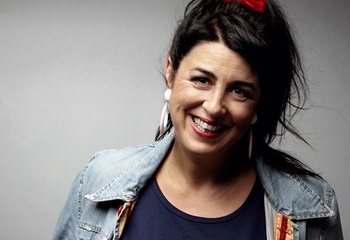Following her collaboration with Calexico on her solo debut, Tucson-Habana, the Spanish singer Amparo Sánchez is back with Alma de cantaora. Sánchez, once at the heart of Amparanoia, sounds more cheerful than on her debut. “I want to support women in their struggle for liberation via music,” she told us.
Amparanoia was one of the mainstays of Spain’s mestizo scene, along with the likes of Manu Chao, Ojos de Brujo, and Macaco. After her successful career with the Latino party group, Amparo Sánchez felt it was time for something different. “After twelve wonderful years I wanted to take an acoustic direction,” she says of her decision to go solo. “It is still fusion music, music without frontiers, with the Caribbean at its heart, especially Cuba. It is not as festive as Amparanoia: it is more intimate, more personal, and richer. I wanted to keep growing as a singer.”
Does the title refer to an opening of your soul?
Amparo Sánchez: It is a declaration of intent, an acknowledgement of how I feel. I sing with complete commitment; I put my whole soul at the service of the music. I feel myself to be a cantaora [flamenco singer - BT], because I feel the need to communicate through the song.
This album is more rhythmic and more cheerful than your debut.
Sánchez: I am in a different phase of my life and that is reflected in the music. At the instrumental level, the album is quite “naked” in order to give more force to the singing and the messages. After the collaboration with Calexico the plan was to do things on my own, but in the end it became an album full of collaborations.

Fijn dat je wil reageren. Wie reageert, gaat akkoord met onze huisregels. Hoe reageren via Disqus? Een woordje uitleg.